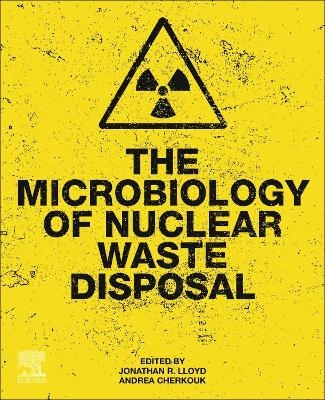
The Microbiology of Nuclear Waste Disposal
Elsevier Science Publishing Co Inc (Verlag)
978-0-12-818695-4 (ISBN)
Planning for suitable facilities in the U.S., Europe, and Asia has been based mainly on knowledge from the geological and physical sciences. However, recent studies have shown that microbial life can proliferate in the inhospitable environments associated with radioactive waste disposal, and can control the long-term fate of nuclear materials. This can have beneficial and damaging impacts, which need to be quantified.
Jon Lloyd holds a BSc in Applied Biology from the University of Bath, and a PhD in Microbiology from the University of Kent. After postdoctoral positions at University of Birmingham and an Assistant Research Professorship at the University of Massachusetts (Amherst), he moved to Manchester University in 2001, where he is Professor of Geomicrobiology and Director of the Williamson Research Centre for Molecular Environmental Science. He has published more than 200 papers in the broad area of geomicrobiology, and has a long-standing interest in the impact of microbial processes on the nuclear fuel cycle. Andrea Cherkouk studied geoecology at the Technical University Bergakademie Freiberg, where she got her master´s and PhD degree. She worked as a scientist at the Institute of Resource Ecology of the Helmholtz-Zentrum Dresden-Rossendorf in Germany and at School of Earth and Environmental Sciences of the University of Manchester, UK. Currently she is the head of the HZDR Junior Research group MicroSalt. Her main research interests are on bio-influenced radionuclide migration, biogeochemistry, microbial ecology and halophilic microorganisms.
1. Introduction2. Waste types and national inventories3. Analogue sites4. Deep subsurface baseline geomicrobiology5. Molecular techniques for understanding microbial abundance and activity in wasteforms6. Organic materials and their microbial fate in radioactive waste7. Microbial impacts on gas production in ILW; Finnish perspective8. Halophilic microbial metabolism and impact on radwaste disposal in salt deposits9. ILW and the biobarrier concept10. Microbial transformations of radionuclides in radwaste11. Bentonite geomicrobiology12. Modeling approaches to support safety case development13. Microbial production and metabolism of hydrogen in GDFs14. Stakeholder engagement; communicating microbial impacts on radwaste to key stakeholders
| Erscheinungsdatum | 02.11.2020 |
|---|---|
| Sprache | englisch |
| Maße | 191 x 235 mm |
| Gewicht | 840 g |
| Themenwelt | Naturwissenschaften ► Biologie ► Ökologie / Naturschutz |
| Naturwissenschaften ► Chemie | |
| Naturwissenschaften ► Geowissenschaften ► Geologie | |
| Technik ► Elektrotechnik / Energietechnik | |
| ISBN-10 | 0-12-818695-X / 012818695X |
| ISBN-13 | 978-0-12-818695-4 / 9780128186954 |
| Zustand | Neuware |
| Informationen gemäß Produktsicherheitsverordnung (GPSR) | |
| Haben Sie eine Frage zum Produkt? |
aus dem Bereich


